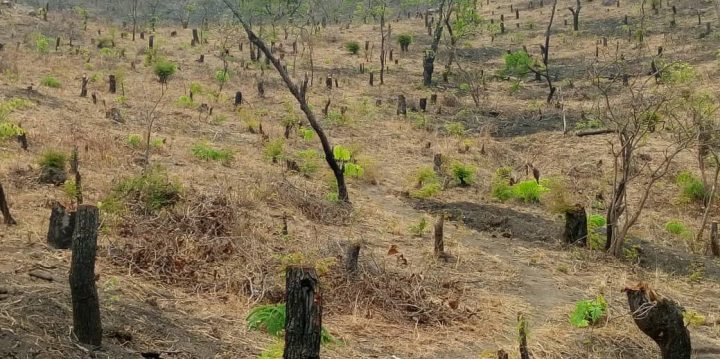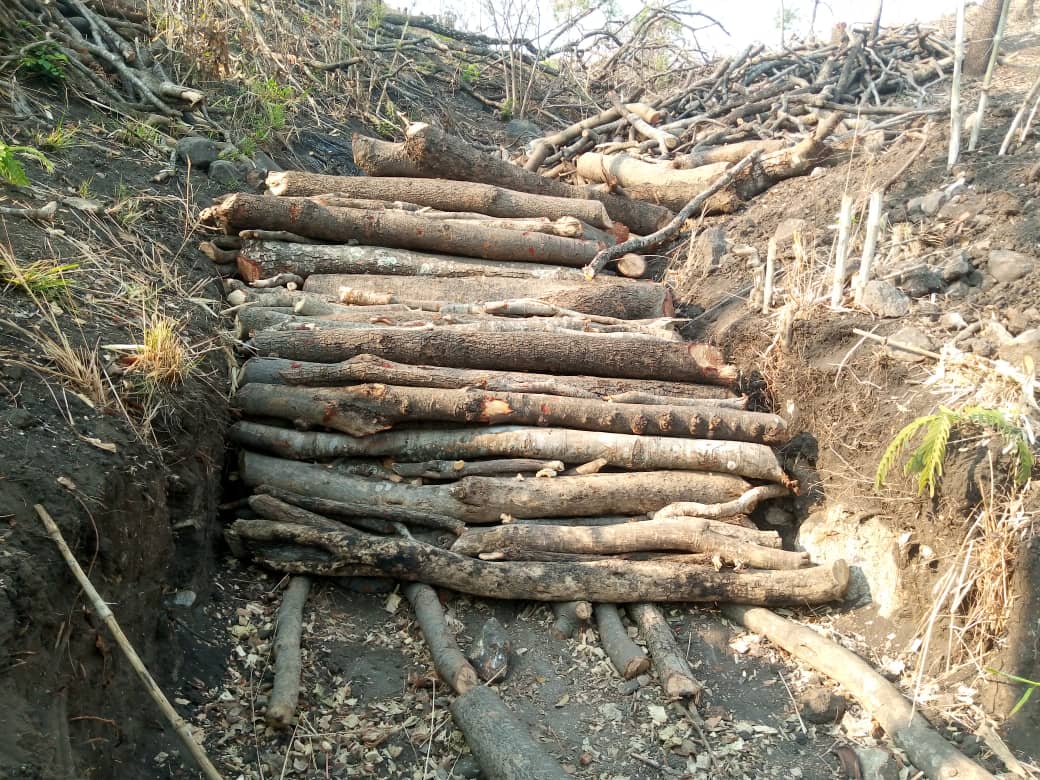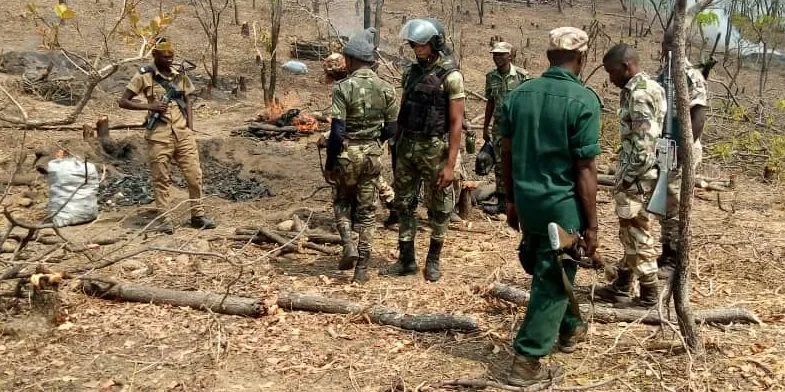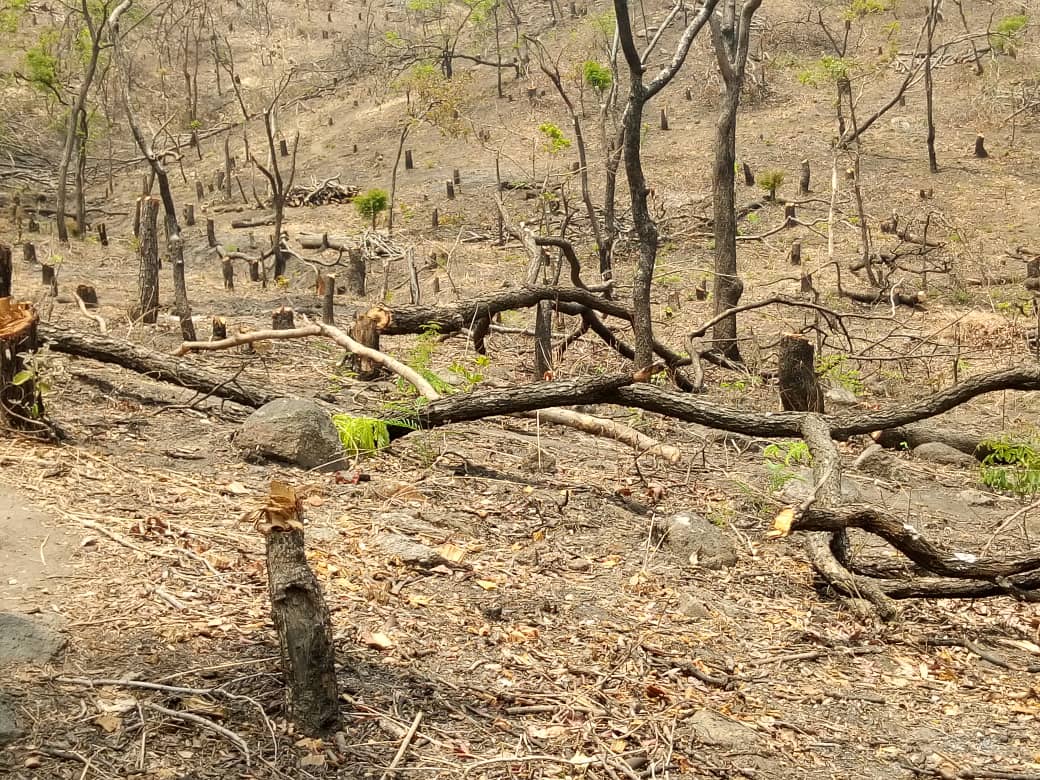WOOD FOR THE TREES OP-ED
War on nature — Malawi’s Michiru Forest Reserve is being horrifically stripped to extinction

It is estimated that Michiru Forest has now lost over 1,904ha, with most of these being home to indigenous tree species. It is also feared that other forms of biodiversity are rapidly disappearing.
As the world grapples with climate change, with Africa and other countries in developing regions bearing the brunt of it, humanity is waging a war on nature, causing unprecedented destruction and driving many into poverty.
Forests play a key role in the well-being of humanity, including food, water purification and climate change mitigation. In addition, they are home to about 80% of global biodiversity and support the livelihoods of more than one billion people around the world.
Africa, like many other regions in the world, is witnessing massive deforestation. Between 2015 and 2020, Africa’s deforestation rate stood at 4.41 million hectares annually according to the 2020 Global Forest Resources Assessment. Major drivers of deforestation on the continent include agricultural developments, infrastructure developments and mining.
Michiru Forest Reserve, one of Malawi’s iconic forests, is on the brink of destruction. Located in southern Malawi, the reserve was established in 1970, covering an area of 3,004ha. The reserve is home to a variety of wildlife such as leopards, porcupines, baboons, blue and vervet monkeys, bushbuck, and birds.

Logging at the Michiru Forest Reserve. (Photo: C Ausward Bonongwe)
The forest provides direct benefits to the neighbouring communities in terms of mushrooms, firewood and medicine, and is important for religious activities. Over the years, the forest has faced pressure, driven by a growing population, agricultural expansion, urbanisation and poaching, leading to its degradation. Damage was further exacerbated by the impacts of the Covid-19 pandemic and Cyclone Freddy, which hit the country in March 2023.
It is estimated that Michiru Forest has now lost over 1,904ha, with most of these being home to indigenous tree species. It is also feared that other forms of biodiversity are rapidly disappearing — for example, the Southern Crowned Hornbill, classified as a vulnerable species, has not been sighted in recent years. Further, destruction of the forest has also severely impacted tourism in the area.
At the 2022 United Nations Convention to Combat Desertification (UNCCD) COP15 in Côte d’Ivoire, Malawi committed to restoring more than 4.5 million hectares of degraded forests by 2030 as part of the fight against climate change.

Park rangers in Michiru Forest Reserve. (Photo: C Ausward Bonongwe)
On the flip side, green spaces in the country are disappearing at an alarming rate. It is estimated that about 7.8 million hectares of land is degraded.
The Wildlife and Environmental Society of Malawi (WESM) — the BirdLife partner in Malawi — is calling for concerted efforts to bring this environmental carnage to an immediate stop. WESM is working with government agencies, including the Department of Wildlife and National Parks, and engaging with local communities through meetings with chiefs and other key stakeholders.
WESM has also begun a petition to create awareness on the issue. Beyond this, urgent financial support is needed to rehabilitate the forest and put in place a management plan. This plan should be developed in partnership with local communities, civil society organisations, academia and the wider public.

Michiru Forest Reserve. (Photo: C Ausward Bonongwe)
WESM is also calling for enhanced awareness-raising among the local communities to profile the importance of the forest.
We need to act now and save Michiru Forest from destruction for the sake of this and future generations. DM
Blessings Chingagwe is a Programme Manager at the Wildlife and Environmental Society of Malawi (WESM).



















This is common across Sub Saharan Africa, nothing is produced yet hectares of trees are cut down, burnt and sold as charcoal. It is so sad given the fertile soil that is untouched across the region